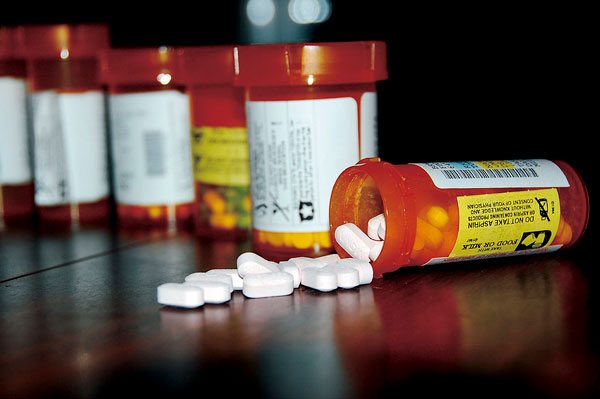
January 8, 2018; Bismarck Tribune and Argus Leader
Three Dakota-based, American Indian nations—the Rosebud Sioux, Flandreau Santee Sioux, and the Sisseton Wahpeton Oyate—filed a federal lawsuit this week against opioid manufacturers and distributors, “seeking monetary damages for an epidemic that has had devastating impacts for tribal members,” reports Amy Dalrymple in the Bismarck Tribune.
The suit, filed in US District Court in South Dakota, names 24 defendants, including pharmaceutical manufacturers Purdue Pharma, Teva Pharmaceutical Industries and Allergan, and distributors McKesson Corp., Cardinal Health Inc., and AmerisourceBergen Corp.
“Representing the plaintiffs,” Dalrymple adds, “is former North Dakota US Attorney Tim Purdon and former South Dakota US Attorney Brendan Johnson, who now lead the American Indian Law and Policy Group for national firm Robins Kaplan.” John Hutt of the Argus Leader notes that Robins Kaplan previously took on the tobacco industry in the 1990s, reaching a $6.13 billion settlement for the state of Minnesota and $469 million for Blue Cross/Blue Shield in 1998.
The suit is hardly the first opioid-related lawsuit to target pharmaceutical companies, but, according to Hutt, “it’s one of the first to tie those claims to the opioid crisis’ disparate impact on [American Indian] populations.” Plaintiffs’ attorney Purdon notes that, “The prescription opioid crisis has hit Indian Country hard,” and says that he is “hopeful” that other North Dakota tribes may join the lawsuit.
As NPQ has noted before, American Indians have been disproportionately affected by the opioid epidemic. Chairman Dave Flute of the Sisseton-Wahpeton Oyate, whose territory crosses the South Dakota-North Dakota border, says opioid abuse is “growing to the point of being catastrophic. It’s causing more health conditions, causing social dysfunction, family separations. It’s negatively impacting our social way of life.”
Sign up for our free newsletters
Subscribe to NPQ's newsletters to have our top stories delivered directly to your inbox.
By signing up, you agree to our privacy policy and terms of use, and to receive messages from NPQ and our partners.
In South Dakota in 2015–16, Dalrymple writes that American Indians constituted 17.8 percent of people who died from opiate use and 28 percent of patients treated, even though they are only nine percent of the state’s population. Flute adds, “We’re challenged with an epidemic here. And we need to hold people accountable for their actions, all people. Those that use, those that abuse, and those that are contributing the problem, and that includes the pharmaceutical companies.”
Hutt adds, “The 106-page lawsuit outlines a wide range of deceptive marketing, including the use of misleading advertisements, paid speakers who addressed small groups of doctors and direct-to-doctor marketing.”
The complaint also seeks to apply the Racketeer Influenced and Corrupt Organization (RICO) Act. As Hutt notes, the alleged “RICO Act violations relate in part to a pharmaceutical group called the ‘Healthcare Distribution Alliance, an industry group the lawsuit says was used to inflate sales and supplies of the controlled substances.” RICO allows for “both criminal and civil penalties for groups engaged in dishonest financial conduct,” Hutt explains.
Hutt adds that RICO claims related to the opioid epidemic have been filed in other states, including a class action case in Mississippi; a suit by the City of Tacoma, Washington; a health fraud case in Boston, Massachusetts; and suits filed by Luzerne County, Pennsylvania and Cincinnati, Ohio.
“The effect of opioids on South Dakota tribes has been horrific,” says plaintiff co-counsel Johnson. “This epidemic has overwhelmed our public-health and law-enforcement services, drained resources for addiction therapy and sent the cost of caring for children of opioid-addicted parents skyrocketing.”
The complaint seeks a jury trial to determine damages caused by the opioid epidemic, as well as punitive damages. It also seeks an “abatement fund,” which could pay for treatment programs.—Steve Dubb











